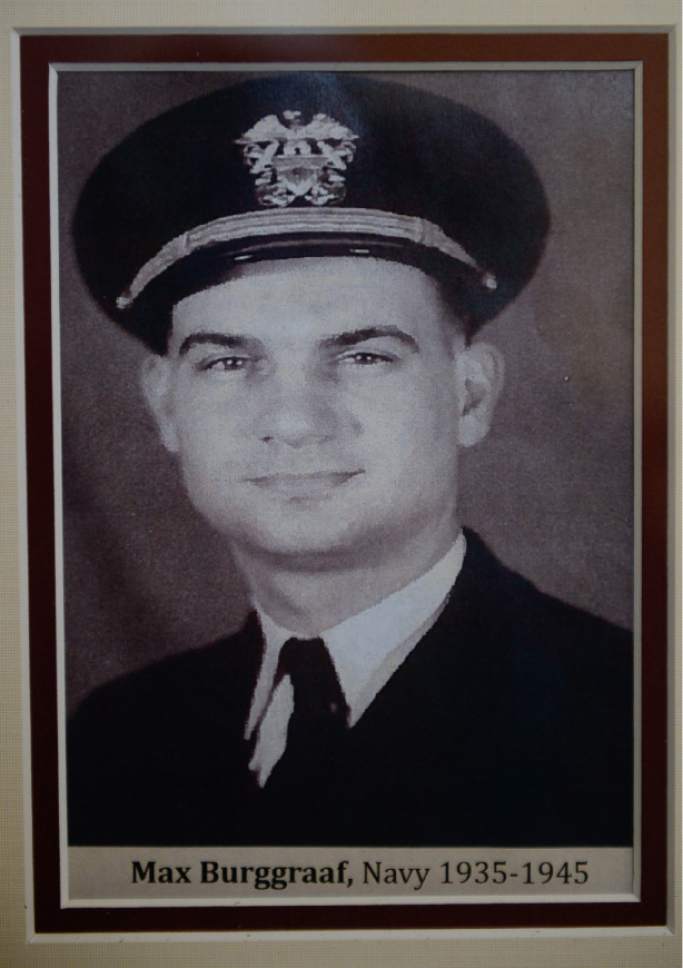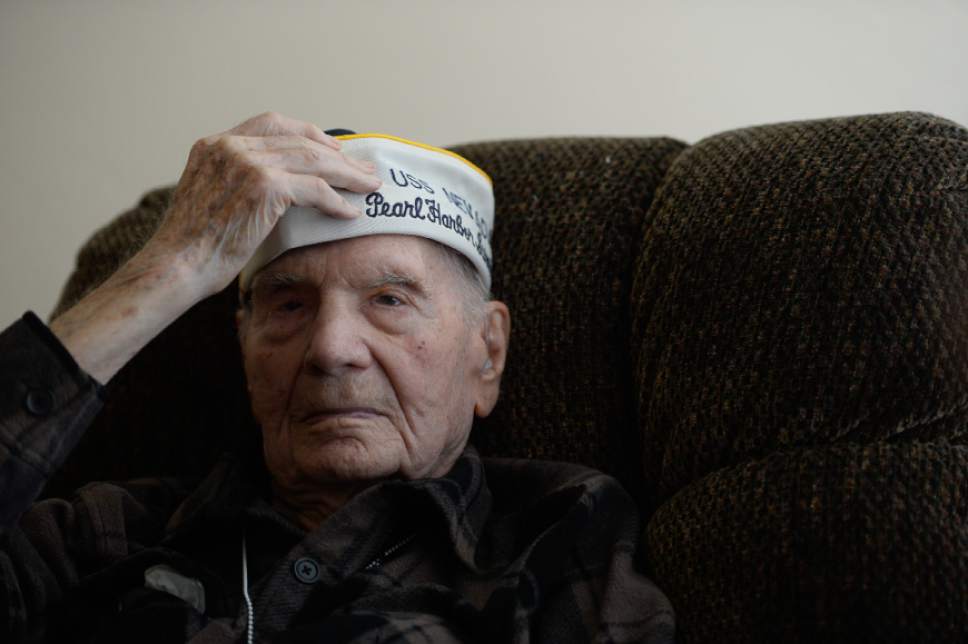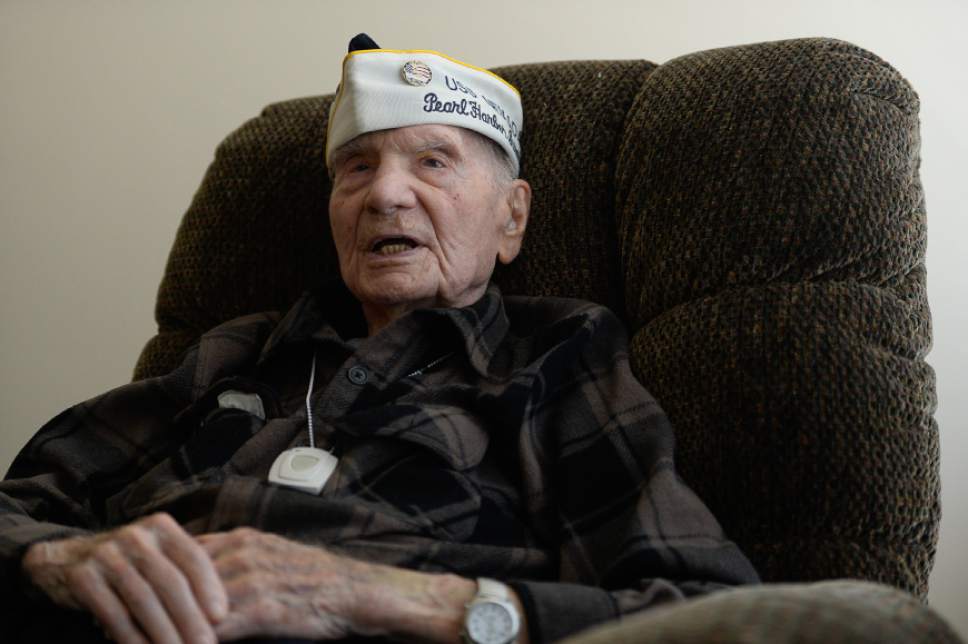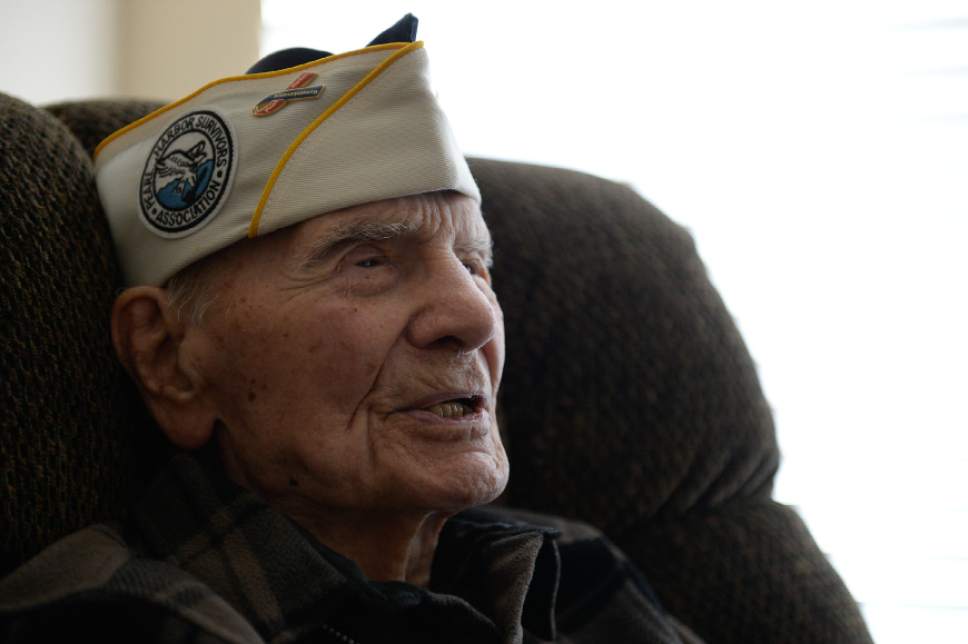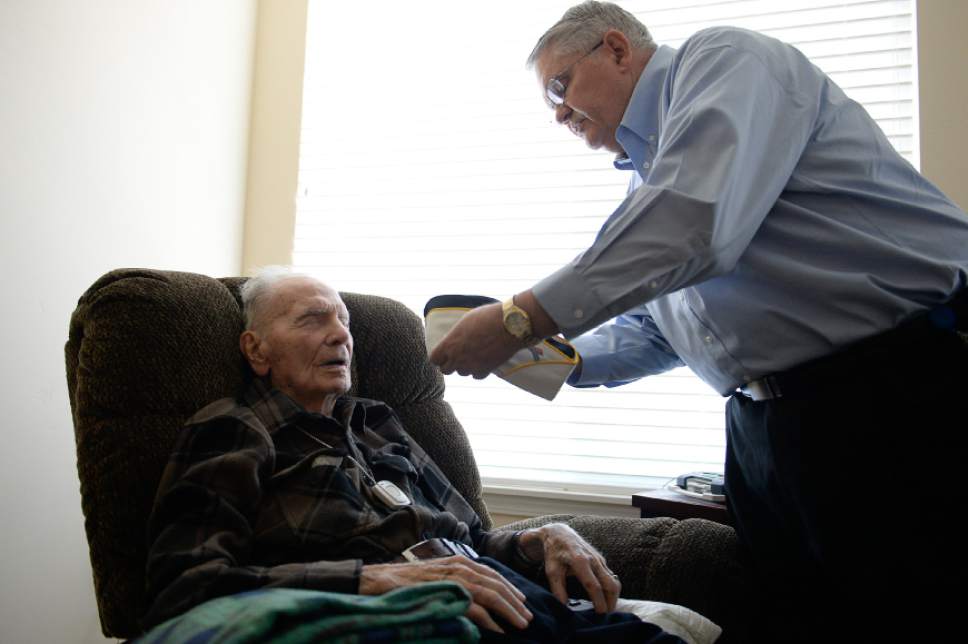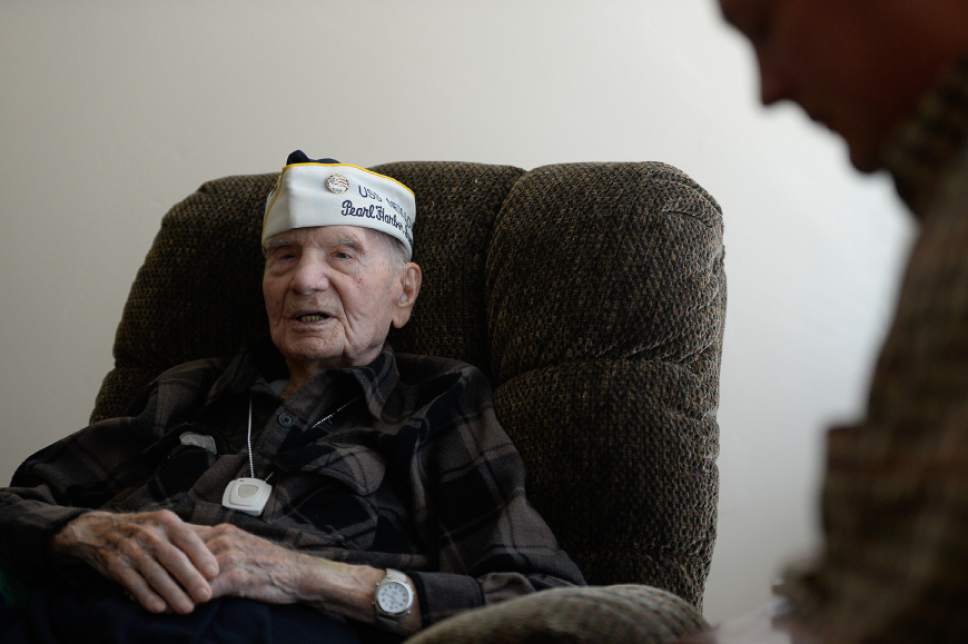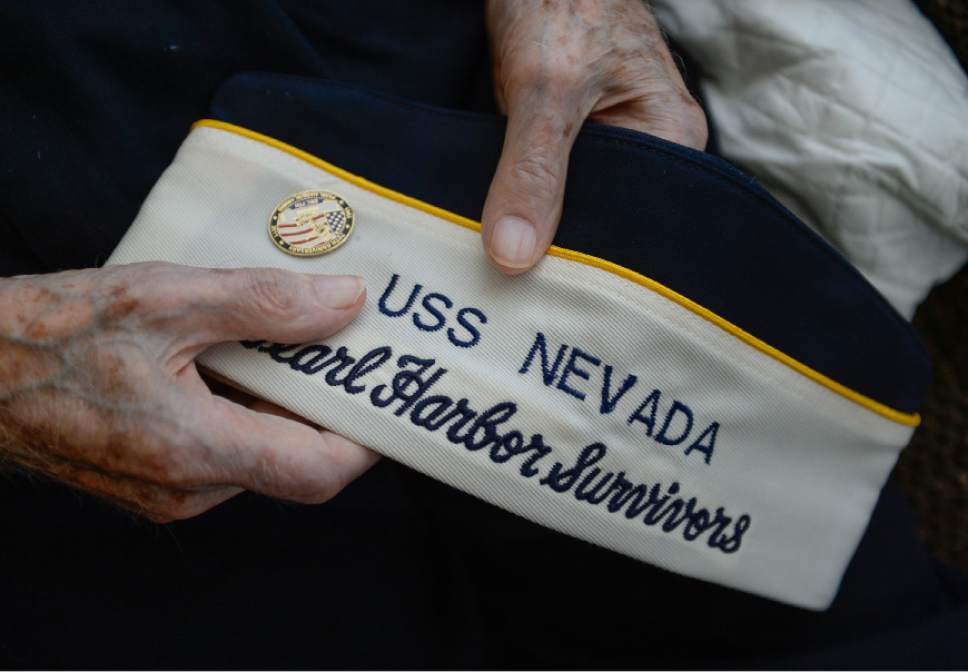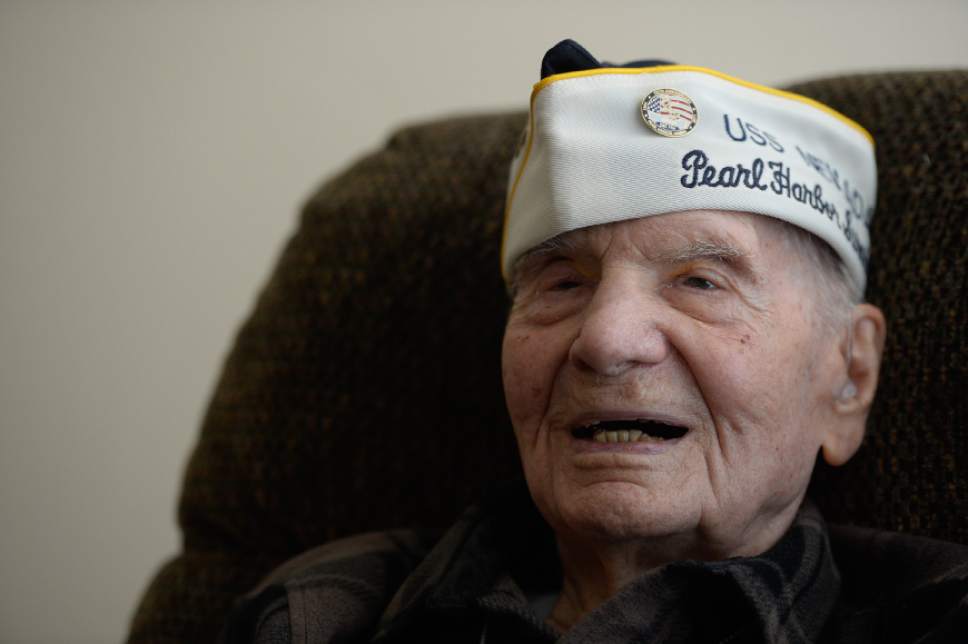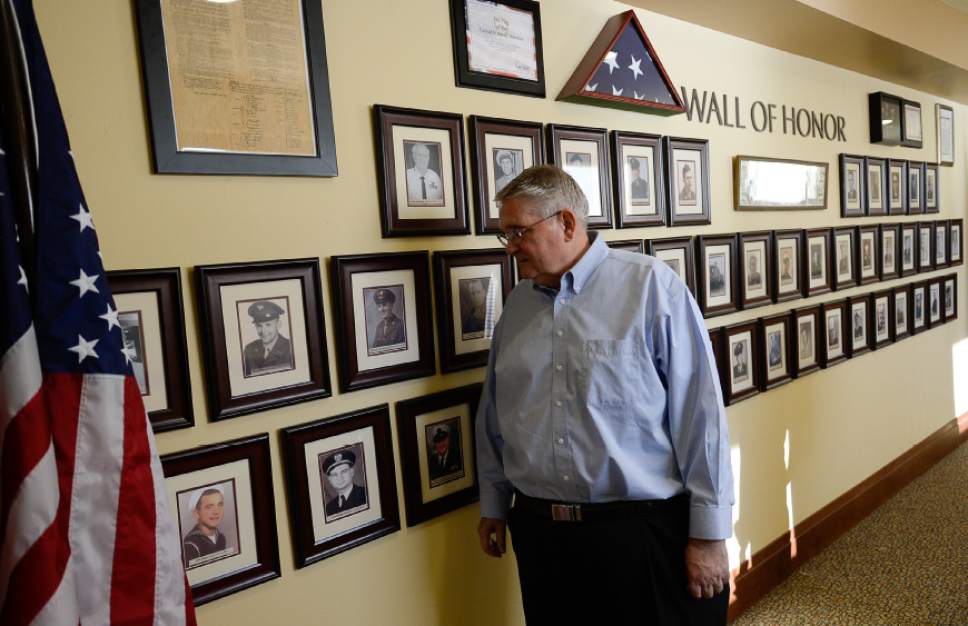This is an archived article that was published on sltrib.com in 2016, and information in the article may be outdated. It is provided only for personal research purposes and may not be reprinted.
South Jordan • Maxwell Burggraaf's garrison hat says "USS Nevada/Pearl Harbor Survivor."
Burggraaf has had it a long time. Not since 1941, but at least for a few decades. He belonged to the Utah chapter of the Pearl Harbor Survivors Association.
"We didn't have a very big crowd here," Burggraaf, 98, said Wednesday, "but we had a lunch once a month."
Those lunches and the summer picnics at the veteran's hospital in Salt Lake City stopped years ago. The association dissolved itself in 2011 after the 70th anniversary of the Japanese attack on Pearl Harbor.
Last month, two Utah residents who survived the attack died. No one is sure how many of Burggraaf's comrades remain here. Burggraaf said he doesn't know of any others, but only those veterans who stood up to be counted sometime in the last 74 years and 11 months were ever documented as having lived through Pearl Harbor.
One of the Pearl Harbor veterans who died in October, 94-year-old Henry Floyd "Cy" Backus, of Orem, belonged to the survivor's association, too, and kept a membership list dated 1995, said his daughter, Elaine Backus. Over the years, he slowly put marks next to the names of members who died.
"He felt lonely and felt sad that the veterans of his day were dying off," Elaine Backus said.
Henry Backus, who was in the base hospital with a respiratory illness when the attack began, remained in the U.S. Navy through World War II and returned to duty for the Korean War. After retiring from the Naval Reserve in 1970, he got active in veterans organizations and had a particular affinity for Pearl Harbor survivors.
"He was painfully aware of the friends who he lost in the war," Elaine Backus said. "I think it was probably within a few years of the end of the war, if not even earlier, that he realized with a lot of humility and gratitude and embarrassment that he was a survivor of Pearl Harbor and the war."
Burggraaf recalled Pearl Harbor and his time in the Navy during an interview at the assisted living center in South Jordan where he resides. He is blind, and began the discussion with his eyes closed. His eyes opened and widened as he told his story.
He was born and raised in Ottumwa, Iowa. With no work available during the Great Depression, Burggraaf enlisted in the Navy in 1936. He was an electrician's mate first class aboard the battleship USS Nevada. At first he tended the ship's deck guns. Then he was moved into the central control station.
Burggraaf wasn't on the USS Nevada or even in uniform when the attack began. He was wearing a gray suit at the Waikiki LDS Ward for a priesthood meeting. Before the meeting could begin, someone announced that the sailors needed to return to base. A man at church had a car and Burggraaf and other sailors jumped in and sped toward Pearl Harbor.
The sailors still didn't know why they were being called back, according to Burggraaf. But as they neared Pearl Harbor's gate, Burggraaf saw the bed of a pickup truck smeared with blood. When they got to the boat dock, the USS Oklahoma was bottoms up. Other ships were on fire. The USS Arizona, which was moored in front of the Nevada, was sinking.
Boat crews agreed to take him to the Nevada as it was building steam to get underway. The seawater and oil ruined Burggraaf's suit.
Bombs damaged the Nevada's forward compartments, killing a sailor at Burggraaf's old station at the deck guns. The ship was taking on water. The crew beached the Nevada so it wouldn't sink in the channel.
Burggraaf remained aboard the Nevada for about another year. He helped make temporary repairs at Pearl Harbor. Then he and the Nevada sailed to shipyards in Bremerton, Wash., for an overhaul.
He was eventually promoted to lieutenant junior grade and assigned to the USS Pittsburgh. He was discharged in 1945.
Burggraaf said that at the time, he didn't know how important the attack on Pearl Harbor would be to the United States or to him.
"I didn't feel like I was a hero," Burggraaf said. "I just did my job."
Twitter: @natecarlisle


